10 Soviet cartoons and films in comparison with Disney counterparts
Categories: Cinema | Entertainment | Society | World
By Vika https://pictolic.com/article/10-soviet-cartoons-and-films-in-comparison-with-disney-counterparts.htmlDisney is known all over the world for its cartoons based on books and folk tales. However, Soviet film studios worked with the same stories - and sometimes even did so earlier than their American counterparts.
10 PHOTOS
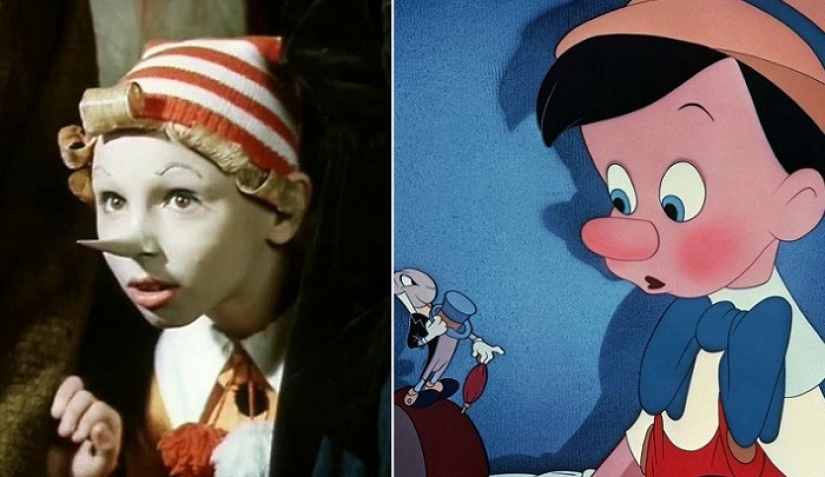
1. Pinocchio - The Adventures of Pinocchio.
Pinocchio, the Russian version of Pinocchio, has several important differences from its Italian brother. First, his nose doesn't grow when he lies. Pinocchio is also a very positive guy, always looking at the world with optimism. The Soviet book and film also have additional characters and storylines - for example, Tortilla the Turtle, which holds the Golden Key.
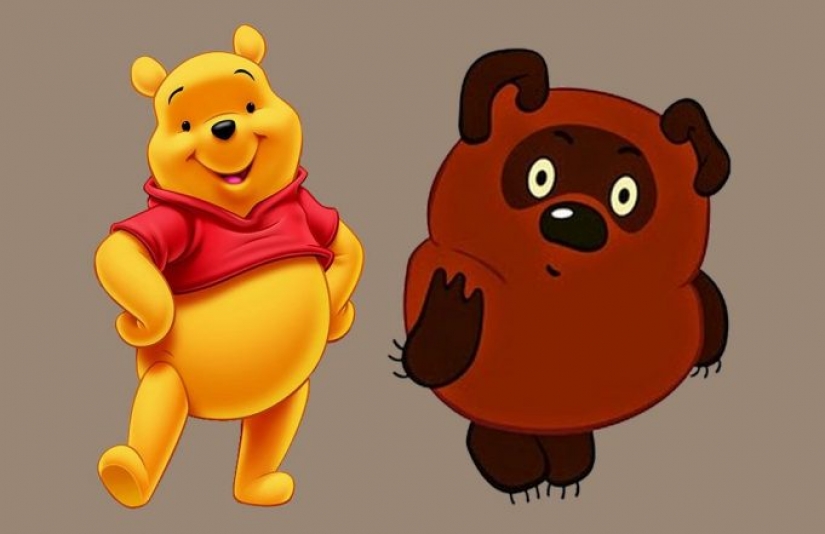
2. Winnie the Pooh vs. Winnie the Pooh.
The Soviet Winnie has virtually no Christopher Robin ... nor does he have friends like Kanga or Tiger. But the Soviet Vinnie also finds himself in a difficult position after eating too much honey. Eeyore also loses its tail - and in fact, the duet of Winnie and Piglet finds it and returns it as a birthday present. And, of course, the Soviet Vinnie also does his best to get honey from a tall tree.
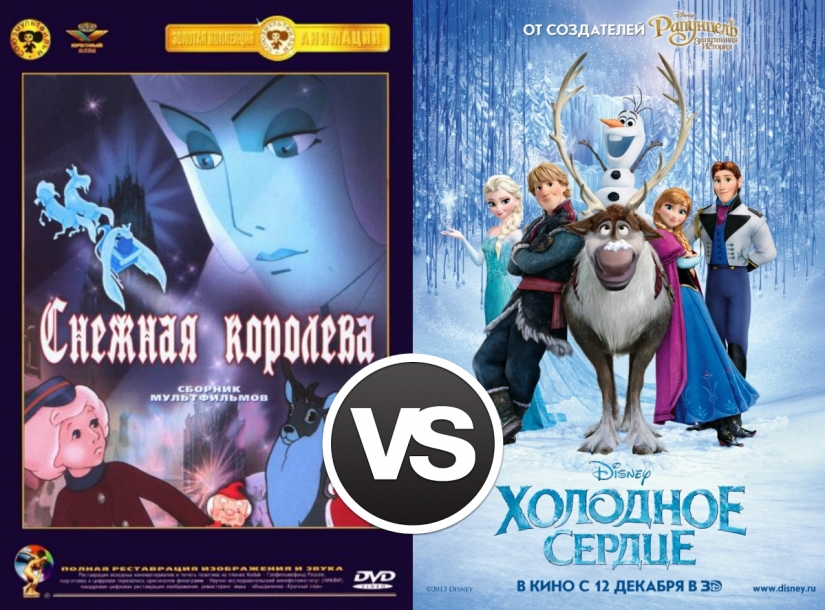
3. The Snow Queen vs. Frozen.
One of the most recent animated films to take the world by storm, Frozen has a great Soviet predecessor in 1957. Both are inspired by a story by Hans Christian Andersen. The difference is that in the Soviet film Gerda heroically travels alone, looking for her brother Kai, bewitched by the heartless Snow Queen. Another difference is that Disney Elsa is actually the sister of the Snow Queen and also has magical powers that she has hidden throughout her life. Soviet Gerda is guided only by love and courage against a much more powerful (and adult) being.
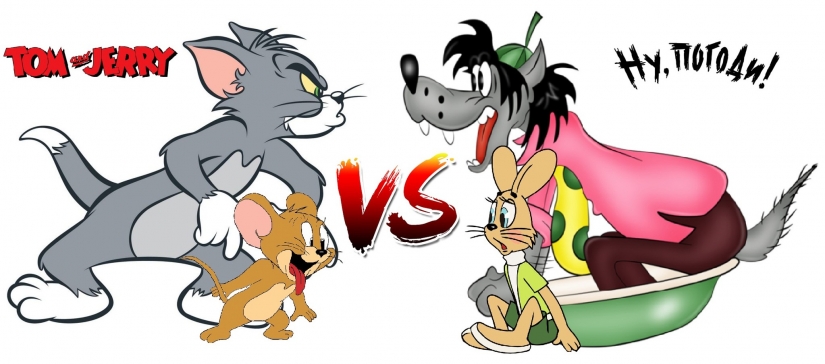
4. Tom and Jerry vs. Well, wait a minute!
Officially, the Soviet cartoon has nothing to do with Tom and Jerry, but the similarities are obvious. The American version features Tom, the cat, and Jerry, the mouse. Soviet opponents are the Wolf and the Hare. They are not dumb, they are much humanized, they wear clothes, they use transportation, and they are not locked in the same house. The wolf is actually a badass - he smokes, drinks beer, and wears a leather jacket. And the Hare, like Jerry, is very smart and very cruelly mocks his aggressor.
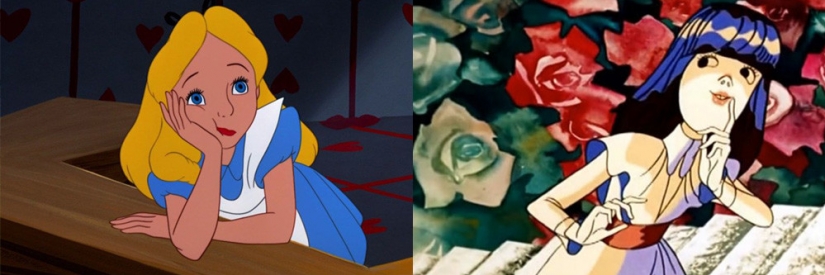
5. Alice in Wonderland.
Lewis Carroll's Alice in Wonderland as interpreted by Disney in 1951, and in 1981 by the Soviet film studio Kievnauchfilm. In the Soviet version, there is no King of Hearts and there is no episode with Alice's tears.
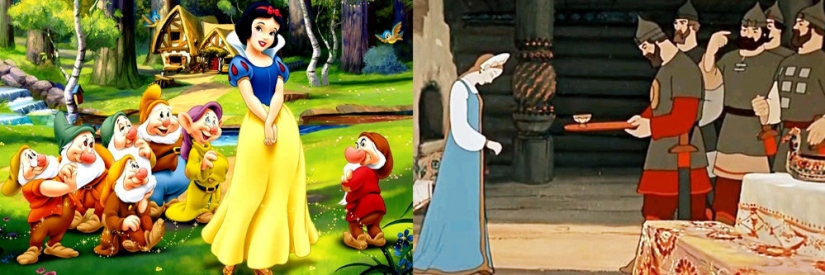
6. Snow White and the Seven Dwarfs against the Tale of the Dead Princess and the Seven Bogatyrs.
Snow White and the Russian princess suffer from envious stepmothers who envy their beauty and drive them out of their homes. One of the main differences is obvious from the name - instead of finding refuge in the hut of the gnomes, the Russian princess meets the heroes. Both girls are poisoned by the enchanted apple. A happy ending is similar - the prince (prince) finds his beloved, kisses and saves her, and they get married.
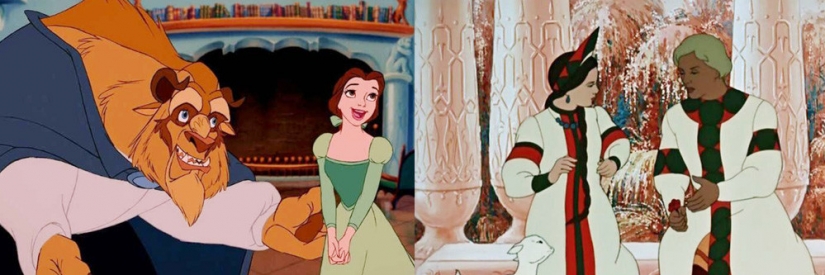
7. Beauty and the Beast against the Scarlet Flower.
Beauty and the Beast is a popular European folklore story, which was interpreted by the writer Sergei Aksakov for the Russian fairy tale "The Scarlet Flower". What is the difference between the Scarlet Flower? There is also a father who works hard, but as a merchant who makes sea voyages to distant lands. And although the beauty of Disney is the only daughter, the Russian Nastya has two older sisters.
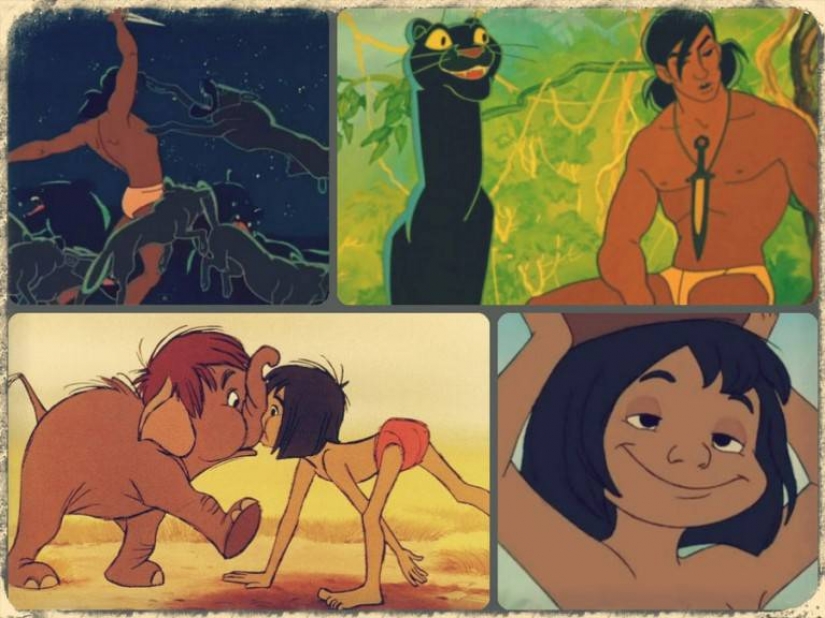
8. The Jungle Book vs. Mowgli.
Both cartoons are based on Rudyard Kipling's famous Jungle Book about a wild boy raised in the Indian jungle by animals. While Disney's 1967 story is more uplifting and positive, with singing bears and a joyous wild world, the 1973 Soviet animation is about survival in the jungle by the law of the jungle. The cartoon is full of drama, courage, and metaphors.
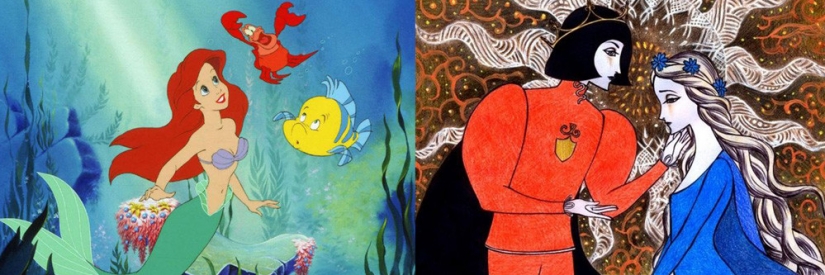
9. The Little Mermaid vs. the Little Mermaid.
In the Soviet version, you won't see Sebastian's funny crab or Flounder's fish. And you won't see Ariel in a seashell bra doing her hair with a fork. But the main plot is similar - the mermaid saves the handsome prince and makes a deal with the sea sorceress. But if Disney has a happy ending, Soviet cinema won't spare the mermaid - who dies at the end.
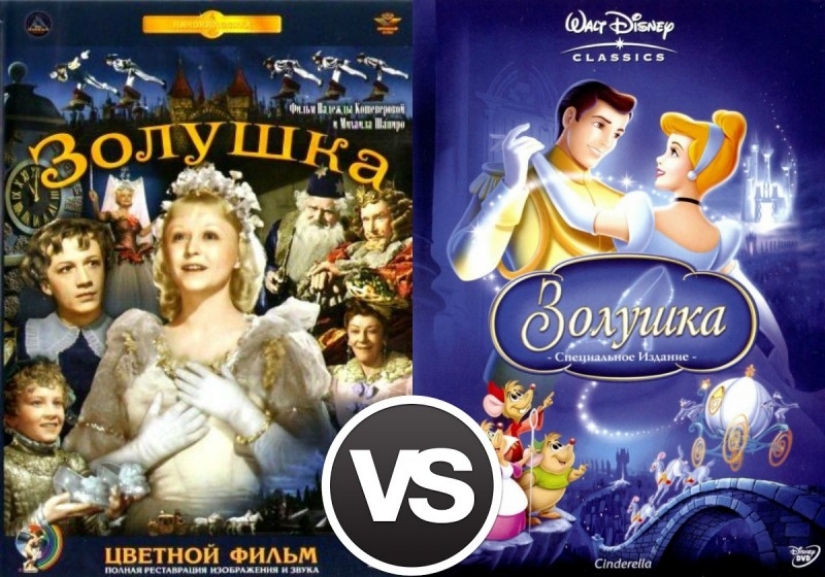
10. Cinderella vs. Cinderella.
Compared to the 1950 Disney version, the Soviet version is closer to the original. Cinderella's father is alive but too gentle and kind to protest against the actions of his new wife. However, in the end, he supports Cinderella, who reveals that the crystal slipper belongs to her.
Keywords: Disney cartoons | Cartoon | Soviet | Children | Folk tales | Film studios | Film | Movie | Animation | Stories | Disney counterparts | Childhood
Post News ArticleRecent articles

It's high time to admit that this whole hipster idea has gone too far. The concept has become so popular that even restaurants have ...

There is a perception that people only use 10% of their brain potential. But the heroes of our review, apparently, found a way to ...
Related articles

What do you know about Mickey Mouse? In fact, this famous and beloved character has its own long and interesting history. Mickey ...

Drawing someone's portrait is not an easy task, but how about drawing it in several different styles? Italian artist Rino Russo ...

English actress Kathryn Beaumont (Kathryn Beaumont) — the actress who voiced Alice in the Disney animated film "Alice in ...

New Year's is a time to surprise and delight loved ones not only with gifts but also with a unique presentation of the holiday ...